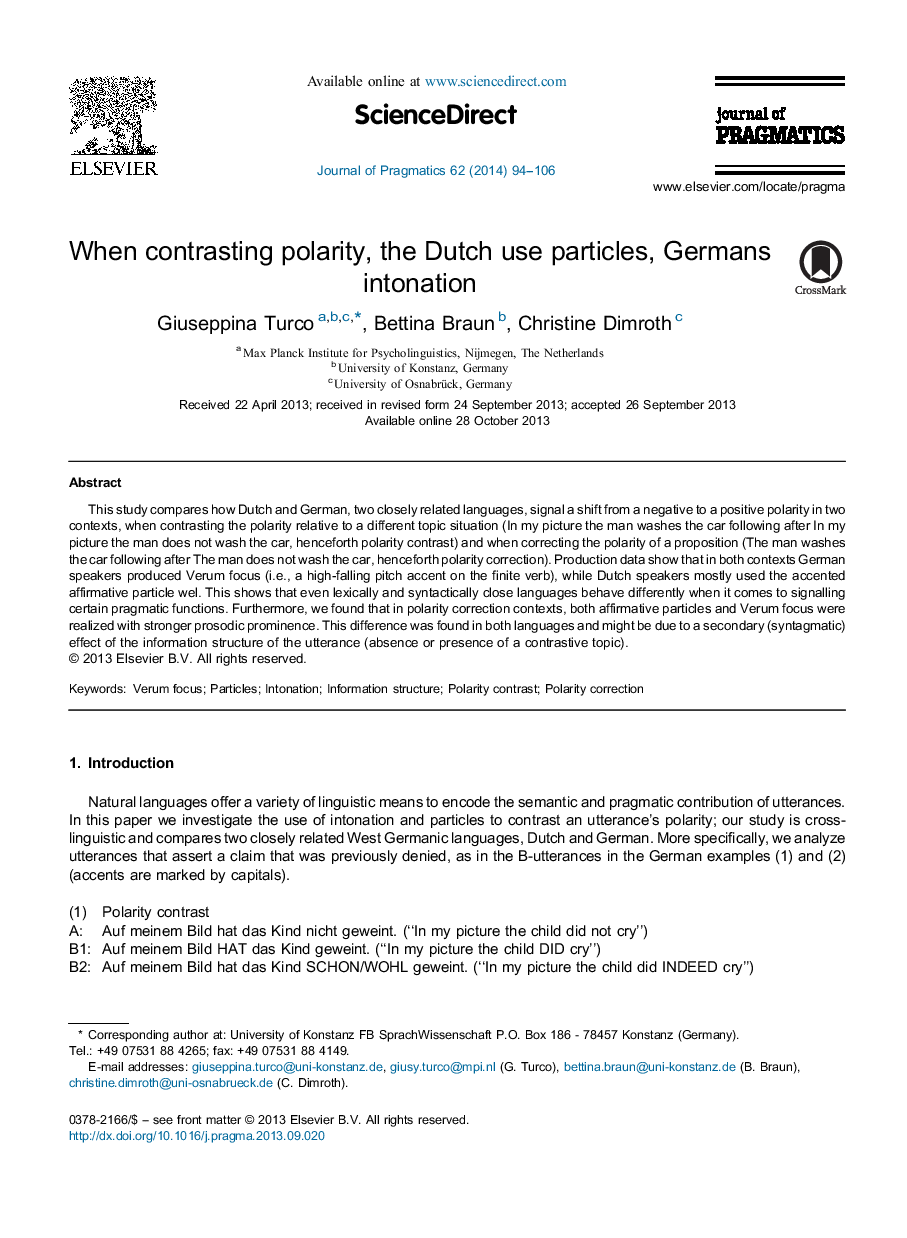| کد مقاله | کد نشریه | سال انتشار | مقاله انگلیسی | نسخه تمام متن |
|---|---|---|---|---|
| 932766 | 1474738 | 2014 | 13 صفحه PDF | دانلود رایگان |
• Speakers produced opposite polarity claims in contrastive and corrective contexts.
• We compared how Dutch and German speakers linguistically marked a polarity switch.
• German speakers used Verum focus, Dutch speakers the affirmative particle wel.
• Verum focus and wel are more prominent in corrective than in contrastive contexts.
This study compares how Dutch and German, two closely related languages, signal a shift from a negative to a positive polarity in two contexts, when contrasting the polarity relative to a different topic situation (In my picture the man washes the car following after In my picture the man does not wash the car, henceforth polarity contrast) and when correcting the polarity of a proposition (The man washes the car following after The man does not wash the car, henceforth polarity correction). Production data show that in both contexts German speakers produced Verum focus (i.e., a high-falling pitch accent on the finite verb), while Dutch speakers mostly used the accented affirmative particle wel. This shows that even lexically and syntactically close languages behave differently when it comes to signalling certain pragmatic functions. Furthermore, we found that in polarity correction contexts, both affirmative particles and Verum focus were realized with stronger prosodic prominence. This difference was found in both languages and might be due to a secondary (syntagmatic) effect of the information structure of the utterance (absence or presence of a contrastive topic).
Journal: Journal of Pragmatics - Volume 62, February 2014, Pages 94–106
